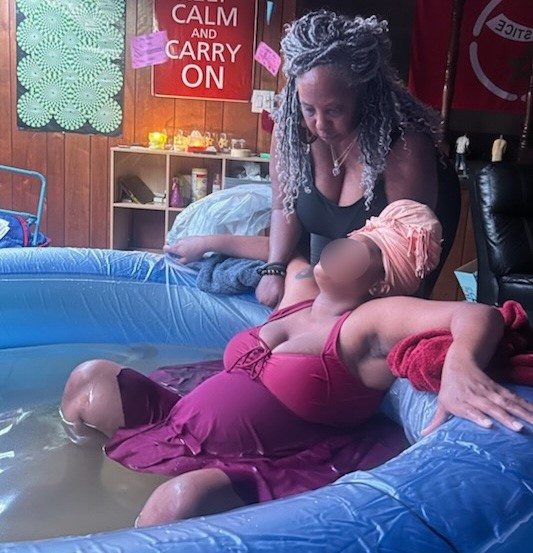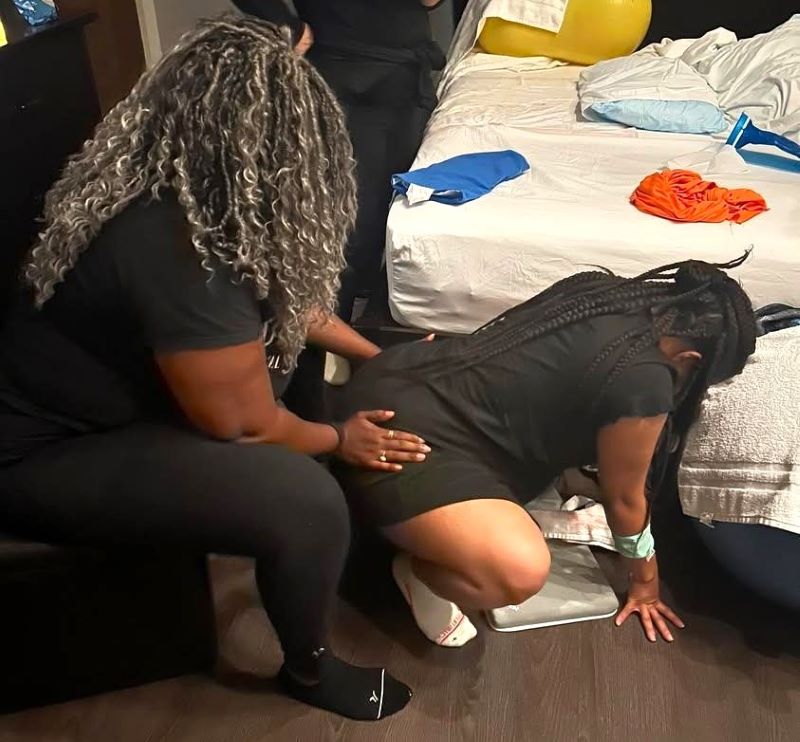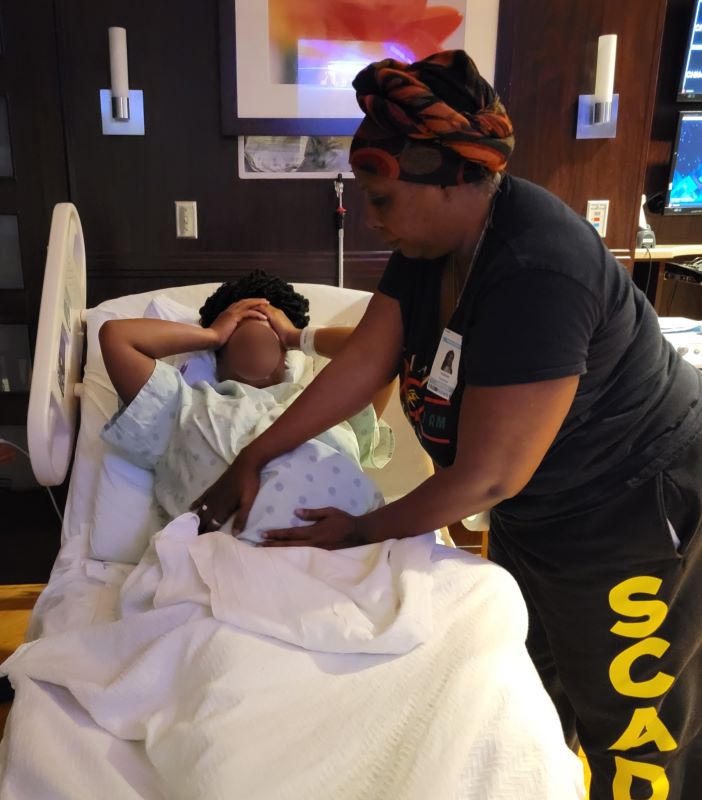In the Black Maternal Health ECHO Program, people are passionate about making pregnancy and childbirth safe for Black women. This ECHO program provides a space for a range of professionals who care about Black women’s lives to share their stories and experiences, learn from each other, and work to inspire others to action.
“The Black Maternal Health ECHO is an extraordinary program,” says Velvet Miller, Ph.D., RN, who’s a member of the ECHO Hub team. “We have a group of committed influencers and educators who are eager to meet every two weeks to spread the word on current and emerging practices that can help save lives.”
While a professor at the Indiana University School of Medicine, Miller founded a group called Not 1 More, to advocate for Black maternal health. “My mantra is that we must do whatever we can to prevent just one more death.” Miller has family members who came close to death during pregnancy or childbirth, and the trauma of those experiences was “significant.”

Doula Holly Frierson, standing above, supports her laboring client, whose face is blurred for privacy. Photo Credit: Not known, provided by Frierson, December 2024.
Pivoting in the Face of Crisis
Indiana University launched a one-year pilot program in 2023. Originally called the Minority Maternal Health ECHO Program, it covered a range of topics and attracted 50 to 60 participants doing work in health disparities, including case managers, clinicians, doulas, midwives, professionals from nonprofits, researchers and social workers. Although most participants are from Indiana, about one-quarter come from more than two dozen other states.
During the second year of operation, the program changed its name to the Black Maternal Health ECHO in acknowledgement of the growing crisis among Black women.
Topics covered have included: barriers to health care for Black patients, a two-part series on supporting Black fathers in family health and supporting Black mothers, birth justice, lived experiences of Black birth workers, trauma-informed care for Black women, and perinatal mental health and addiction.

Doula Holly Frierson relieves labor pain by pressing on a client’s hips. Photo Credit: Not known, provided by Frierson, December 2024.
Building Allyship, Changing Policy
For Holly Frierson, a certified full-spectrum doula and CEO of Divine Transitions Full-Spectrum Doula Care, the real draw of the Black Maternal Health ECHO is the diversity of participants across professions. “We have obstetricians, nurse practitioners, doulas, and all these different providers who are coming together through this ECHO for the same purpose, which is education, knowledge, connection, and advocacy in the pursuit of maternal health.”
The connection across professions is invaluable, says Frierson, because participants learn from each other’s expertise. She also appreciates that an Indiana state representative is a regular participant in the ECHO because of how important it is to connect advocacy with policy. “Changing policy is a major mountain,” she notes, citing ongoing efforts in Indiana to secure Medicaid reimbursement for doulas as an example.
In addition, Frierson says, she values the racial, ethnic, and culture diversity of the people on the ECHO calls for building allyship.
Miller notes that some ECHO participants connect with each other outside the regular calls to continue their conversations and exchange more information. “We’re reaching people and they’re responding,” she says. “They’re taking in information that can impact their networks, and that gives me hope.”
For more information about the Black Maternal Health ECHO Program, visit the Indiana University Indianapolis ECHO Programs webpage.
Featured Image Credit: Photographer not known. Provided by Holly Frierson, CEO of Divine Transitions Full-Spectrum Doula Care, December 2024. Client’s face blurred for privacy.

